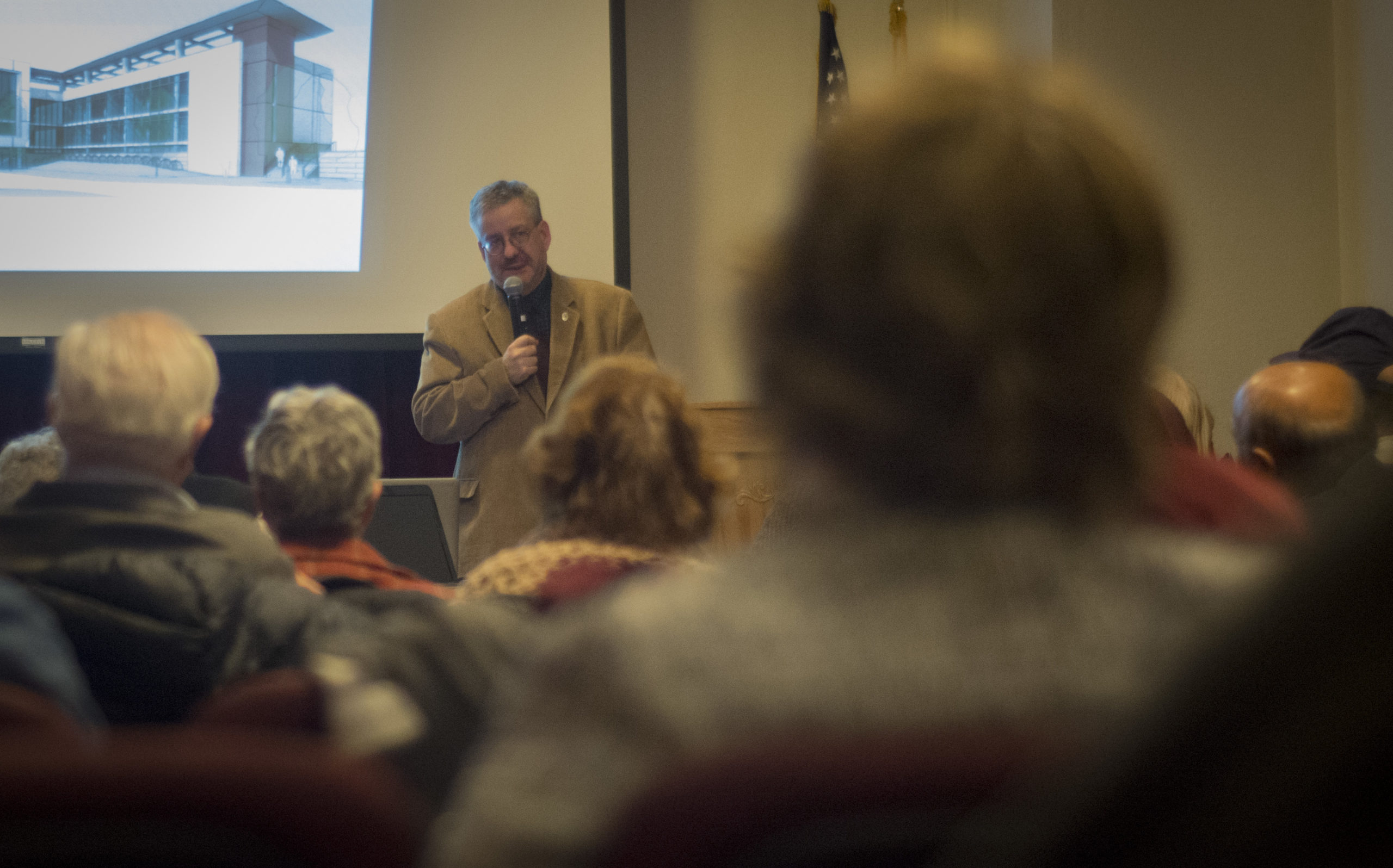Dozens of residents crowded a room in Great Neck House to hear the history of the U.S. Merchant Marine Academy last Wednesday, with many asking questions about the school and its midshipmen.
Dr. Joshua M. Smith, interim director of the American Merchant Marine Museum, traced the origins and expansion of the school back to the early 20th century, when many houses owned by silent movie directors and producers dotted what is now academy property.
Smith described the school as a pioneering one on many fronts. The school was the only federal academy that was “never fully segregated,” for example, and it was the first to admit women – in 1974.
“These are incredible young people” Smith told the audience. “They’re doers, they step up in times of crisis, these are young people – both men and women – of action.”
The school and the merchant marine also have a history of being on the front lines, Smith said, with 142 who had attended the academy being killed in the Second World War and many others having died in other wars since then.
It is also a history that resonates throughout the campus and with students, Smith said.
“One of the really unusual parts of the academy is that we send our midshipmen onto commercial vessels even during wartime, even if those ships are going into war zones,” Smith said. “None of the other federal academies intentionally sends their students into harm’s way.”
He noted that while the merchant marine technically began as a regulated entity in 1920 under the Jones Act, its emblem lists the start date as 1775 in part because of the actions of mariners during the Revolutionary War.
Alice Kasten, the president of the Great Neck Historical Society, said the event was one of the most well attended in recent memory, with there only being standing room. Kasten also described the event as one that hoped to strengthen the relationship between the academy and the Great Neck community.
“It’s always been interesting to me that we’re actually a college town and you don’t feel it,” Kasten said in an interview. “You don’t know it.”



